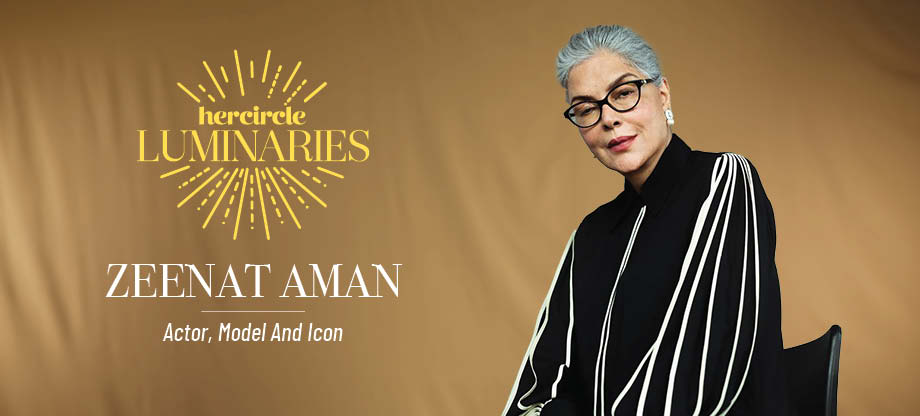Zeenat Aman, one of the most iconic actresses of the 1970s and 1980s, continues to be celebrated as a trailblazer in Indian cinema. Known for her groundbreaking roles in films, her bold persona, and unmatched screen presence, Zeenat Aman reshaped the portrayal of women in Bollywood and remains a beloved figure to this day.
Early Life and Entry into Bollywood
Born on November 19, 1951, in Mumbai, Zeenat Aman was raised in a cosmopolitan environment, with her mother being a former beauty queen and her father a respected civil servant. She began her career in the entertainment industry as a model, participating in several beauty pageants, and even winning the title of Miss India in 1970. This opened the doors to her eventual foray into acting, with her first major appearance being in the 1970 film Hulchul. However, it was her portrayal in The Hare Rama Hare Krishna (1971), directed by Dev Anand, that brought her widespread recognition.
Breaking Stereotypes and Redefining Boldness
Zeenat Aman is often credited with challenging the conventional norms of female roles in Bollywood films. Prior to her entry, heroines in Hindi cinema were often depicted as demure, coy, and submissive. Zeenat Aman’s characters were bold, assertive, and unapologetically modern. Her performances in films such as Yaadon Ki Baaraat (1973), Rakhwala (1971), and Don (1978) showcased her versatility, making her the quintessential “heroine of the 70s.”
She made a lasting impact with her roles in socially progressive films like Satyam Shivam Sundaram (1978), where she portrayed a woman struggling with her physical and emotional scars, challenging the traditional view of female beauty. Her portrayal of Rupa in The Burning Train (1980) further solidified her position as one of the most dynamic actresses of her generation.
Cultural Impact and Boldness
Her portrayal of a “modern woman” was both liberating and controversial, especially during the conservative era of the 1970s and 1980s. Zeenat Aman’s openness to playing daring, complex roles marked a departure from the innocence typically expected of actresses at the time. She was among the first actresses to engage in more sensual and glamorous roles, which became a defining characteristic of her career.
Her partnership with actor Amitabh Bachchan in films like Don (1978) and The Great Gambler (1979) was widely appreciated, and she became one of the leading female stars alongside other contemporaries like Hema Malini and Rekha.
Personal Life and Challenges
Despite her immense success on screen, Zeenat Aman’s personal life often found its way into the headlines. Her tumultuous relationship with actor Sanjay Khan and her subsequent marriage to actor Mazhar Khan made her a subject of media speculation. She faced personal struggles, but her resilience and ability to bounce back from setbacks only added to her legendary status.
The Later Years and Legacy
Although Zeenat Aman’s career slowed down in the late 1980s, her legacy remained firmly intact. She appeared in occasional roles in the 1990s and 2000s but largely stayed out of the public eye. However, her legacy as a bold, versatile, and fearless actress continues to inspire new generations of actresses in Bollywood. Her style, confidence, and iconic roles have left an indelible mark on the industry, making her one of the most memorable stars in the history of Indian cinema.
Conclusion
Zeenat Aman is not just an actress; she is an icon who defined an era. Her performances, ability to break stereotypes, and fearless attitude towards her roles changed Bollywood forever. Today, she remains a role model for young actors and a celebrated figure whose influence on Indian cinema cannot be overstated. From being a beauty queen to becoming a screen legend, Zeenat Aman’s journey is a testament to her extraordinary talent and resilience.
